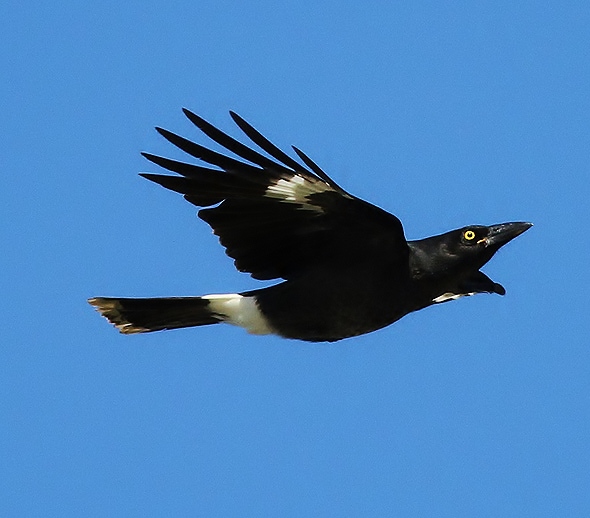 |
| Photo by Chris Chafer (Flickr) |
Common name:
pied currawong (en); verdugo-malhado (pt); grand réveilleur (fr); verdugo pío (es); dickschnabel-würgerkrähe (de)
Taxonomy:
Order Passeriformes
Family Artamidae
Range:
This species is endemic to eastern Australia, being found from northern Queensland to Victoria and marginally into South Australia.
Size:
These birds are 44-51 cm long and have a wingspan of 56-77 cm. They weigh 280-320 g.
Habitat:
The pied currawong is mostly found in both moist and dry sclerophyll forests, tropical forests, and savannas, but also in scrublands, arable land and within urban areas.
Diet:
They are omnivorous and opportunistic, taking a wide variety of food such as small lizards, insects, caterpillars, young birds and eggs, fruits and berries.
Breeding:
Pied currawongs breed in July-January. The female builds the nest, a bowl of sticks, lined with grasses and other soft material, placed in a fork in a tall tree, up to 20 m above the ground. There she lays 3 brown to rufous-brown eggs with grey and brown spots and blotches. The female incubates the eggs alone for 21 days while being fed by the male. The chicks are fed by both parents and fledge about 30 days after hatching.
Conservation:
IUCN status – LC (Least Concern)
This species has a very large breeding range and is described as abundant. Population increases have been noted in urban areas probably owing to the increased food supply available







